September 20, 2021
The Caucasus is a remarkable region with its unique nature. Turkey and the world public have known it mostly with the news of conflict and war, but the tourism potential of the region has come to the fore in recent years. It can be said that it is time to recover for the region where the private sector has not developed much due to the administration of the Soviet Union for approximately 70 years. Quite a few people are aware of this whole situation, so there was a need for an interview with Okay Deprem, an expert on the subject. When I contacted him, I tasted invaluable time.
Okay Deprem has been organizing nature, culture and history trips to the Caucasus for a long time. The concept programs developed in accordance with the regional conditions are remarkable. In my interview with him; The tourism potential in the Caucasus, the tourism relationship between Turkey and the Caucasus, why the Caucasus should be visited, the prominent aspects of the Caucasus in terms of tourism, the dangerous aspects of organizing a trip to the Caucasus, the profiles of the people participating in the travel programs in the Caucasus, the Caucasus. We talked about many subjects such as how many days should be devoted to this work by those who want to travel completely. It is presented to the interested parties.
Can we get to know you briefly?
I completed my undergraduate and graduate education in Turkey and Germany. I have been in journalism and writing for over 20 years. In parallel with this, I have been in the tourism business professionally for the last 10 years. For the last few years, I have been continuing my doctoral studies in the field of political philosophy in Russia.
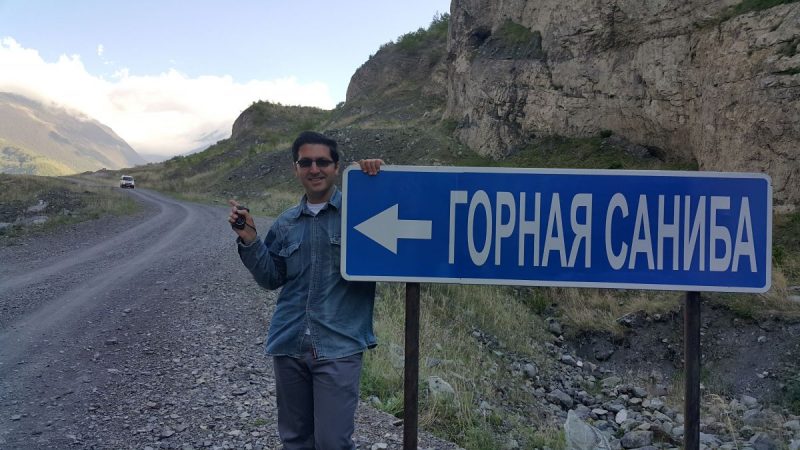
Your itineraries are remarkable. How did your interest in this field begin?
My interest started when I was living in Turkey during my university years. At that time, I started to organize daily thematic trips especially because of my interest in the history of the Eastern-Roman Empire. These were, of course, activities carried out with an amateur spirit, for free. Then I continued my education in Germany. I started working in Ukraine. Again, I continued in Ukraine. Likewise, when I was living in Odessa, I was hosting certain groups. I had a short experience in Antalya in Turkey. For the last 10 years, I have been carrying out cultural trip programs from Turkey to abroad.
In recent years, you have been organizing excursion programs to the Caucasus. Could you tell us about the tourism potential in the Caucasus from history to the present?
There was a very serious interest in the Caucasus region within the scope of domestic tourism during the Soviet Union period. It can be said that there are few people from past generations in the Soviet Union who have not seen the Caucasus. In regions such as Abkhazia, Karachay-Cherkessia, Kabardino-Balkaria, Ingushetia and Dagestan, there were hundreds of treatment, therapy, recreation and rest facilities, which we call sanatoriums. It can be said that the capitals of the Caucasian republics were built for these purposes in this period. However, when we come to the present day, we see that some capitals have lost this feature. However, the Caucasus remains interesting with its different features for the new and middle generations.
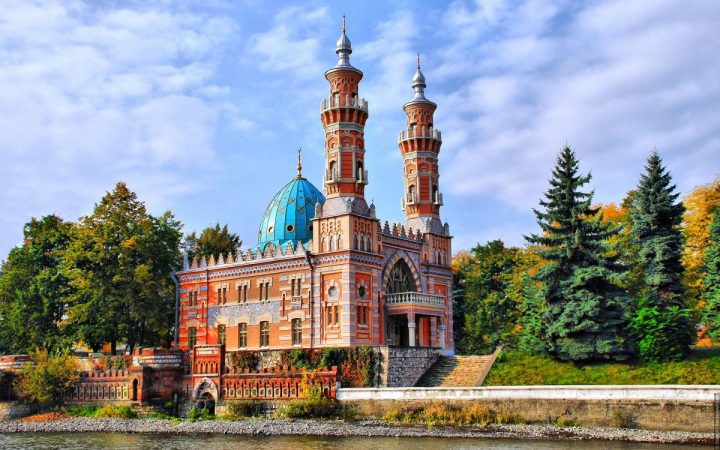
So why weren’t professional travel programs organized from Turkey to the Caucasus until today?
As we know, there was a long period of the Soviet Union, when the borders were not completely closed, but commuting was very difficult. In this period, of course, it is not possible to talk about mass and organized international tourism. Due to the conflicts and instability in the region after the Soviet period, the Caucasus region did not have the conditions for tourism. In the 2000s, the economic and social recovery process took quite a long time. We can say that the opening of the tourism bridge was in the 2010s. Factors such as hotel and accommodation infrastructure, construction of roads, transportation, security, loosening of service industry round-trip procedures took quite some time to mature. However, in recent years, conditions have become favorable. Therefore, we can talk about the objective conditions of mass tourism in the real sense over the last 10 years.
In addition, until recently, there was a European and North American centered perspective in terms of tourism in Turkey. Therefore, regions far from Turkey’s culture and history, such as tropicalism and exoticism, were interesting. As you know, there is always the idea of seeing a Europe in terms of Turkish society. There were few people who went to the Caucasus, few people knew, there were few alternatives, there was no promotion, and the agencies did not care much about this situation. Europeanism and Exoticism worked for him. They were not interested in Caucasian dynamics. Most people think it’s a security issue. They think that the Caucasus froze with what it was 25 years ago. No, there is no such thing anymore. It’s about what they don’t read and what they don’t research.
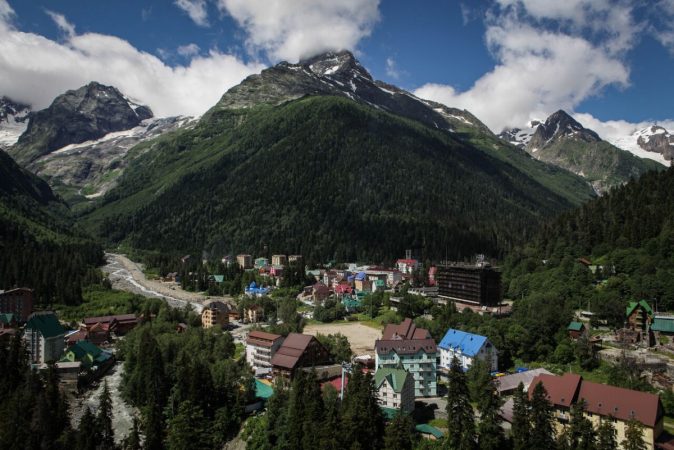
Why should you visit the Caucasus?
Because the Caucasus is one of the most special, rarest and cosmopolitan places in the world. It is a layered and diverse region with its nature, people, culture and history. There is nowhere as much as the Caucasus, with so much linguistic composition, such diversity of dialects, and differences from tradition to tradition. There are very few places where nature is so generous, where there is majesty and splendor.
Especially when we consider the Turkish human mosaic from an ethnic point of view, the region that concerns Turkish people is very few as much as the Caucasus region. As a result, there is always one person of Caucasian origin around everyone. It is a region that directly or indirectly touches Turkish society with its wars, migrations and settlements. The Caucasus is a fascinating, very different, very transcendent region. Those who have gone definitely want to go again.
If Russia had lost the Caucasus, perhaps there would not be a place called the Russian Federation today. It would be solved starting from the Caucasus. In this respect, it is a very strategic region.
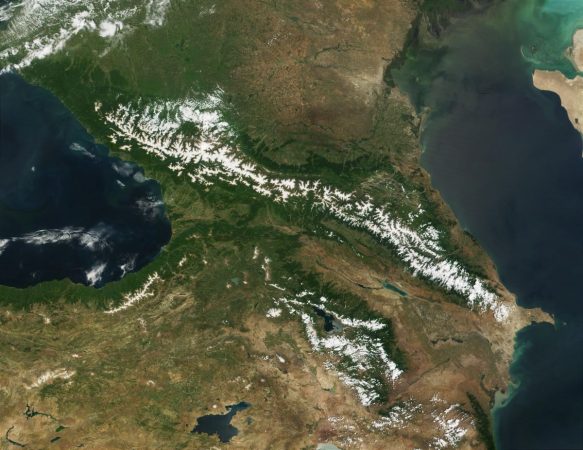
What are the touristic aspects of the Caucasus?
The Caucasus is an interesting and intriguing region in all aspects, with its widest borders. Therefore, it attracts visitors for different purposes. In addition to visits such as water and mud treatment, there are also those who want to visit for the spa. On the other hand, Caucasus means mountain. It has many activities such as climbing, trekking, parachuting, camping and horse riding. When we look at it from a cultural point of view, it is possible to see the architectural features, monuments, holy places, ruins and ancient ruins of cities everywhere. In addition, in any Caucasian republic, you can come across very rich museums with their infrastructure and inventory variety. Ethnographic museums in other regions, from the Adygea National Museum to the Chechen National Museum, are the first ones that come to mind. The Caucasus is also one of the richest regions in the world in terms of endemic plant and animal species. Therefore, if you go to many parts of the world in terms of a few basic features, you go to the Caucasus from every angle. Because with this wealth, it has the potential to attract any tourist.
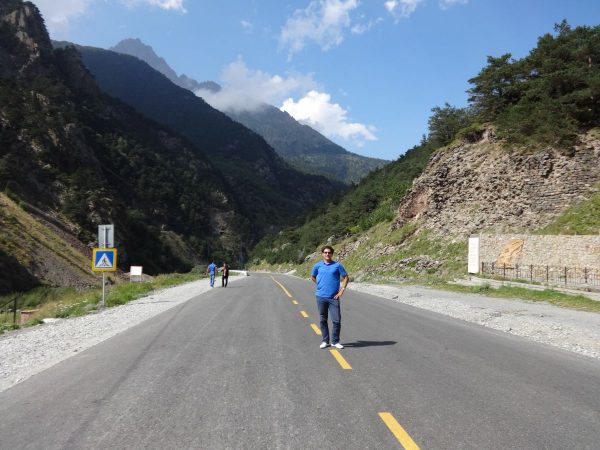
To which regions do you organize your Caucasus trips?
Until now, I mostly organized trips to Central-North Caucasus and South Caucasus. I organized trips to Karachay-Cherkess, Kabardino-Balkaria, North Ossetia, Stavropol Krai and Georgia. Within my plans, I would like to organize a program on the route starting from the Republic of Adygea, Abkhazia, Vaynak region, Ingush-Chechen region, Dagestan and the Russian Black Sea coastline, namely Anapa and continuing until Sochi.
Are there any areas that you cannot go or that are dangerous?
As of today, there is no area that we can call a real danger zone. If we exclude the Armenian-Azerbaijani War, today the North Caucasus is as safe as the southern regions. However, there are regions that I have not entered. For example, the vast mountainous areas of the Chechen-Ingush region, which we call the Vainakh region. There is something not accidental about this. Because although entry to these regions does not contain any risk factor, it is dependent on permission for second country citizens. Permission from the Russian Federal Security Service is required. Similarly, this applies to the mountainous regions in the southernmost part of the Kabardino-Balkarian Republic. This process of obtaining permission is no longer a difficult thing nowadays. It is possible to go if the application is made before a certain period of time and it is put on the mind. In fact, these are the most untouched mountainous regions.
What is the profile of the people who participated in your travel programs to the Caucasus?
The profile is quite diverse. Of course, trips are not only an organization for Caucasian origins. Almost the majority of the tours were non-Caucasian. Maybe it was a coincidence, I don’t know. After all, the more different people meet in the Caucasus, the better it is for the Caucasus as well as for the Caucasians. What is in my heart, of course, is that people of Caucasian origin firmly strengthen their relations with their ancestral homeland.
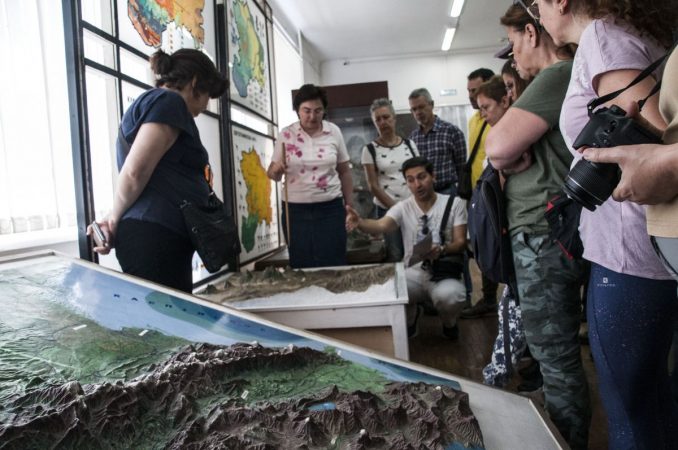
How many days should a person who wants to travel the Caucasus completely devote to this job?
The Caucasus can be divided into two in this respect. In terms of the North Caucasus, when we foresee the borders of the region from Anapa to Derbent, if the right is given in every aspect, that is, if it is passed to the full with its cultural, ethnographic, cities and nature, a period of one month may be required. When we consider all these, of course, there are hundreds of places. Almost the same time should be allocated for the southern region. From Georgia to Armenia and Azerbaijan, even the tomb of Hadji Murat on Azerbaijani territory, there is so much to see.
Finally, can we have a few more sentences that you want to emphasize?
Organized tours can be continued in the Caucasus region for the future. However, I am developing tours with less participation and more flexible dates with the concept I have developed recently. The distance between the Caucasus and Turkey is not far in terms of round trips. Until recently, there were direct flights to regions such as Krasnodar, Sochi, Rostov, Stavropol, Grozny and Makhachkala. Of course, there is a visa situation right now. Russia had previously abolished visas, which lasted for about five years. Currently, visa is of course not an obstacle. Getting a tourist visa to Russia is now easier than before. The main issue in organized tours is to balance the travel dates. In this respect, I think that regional tours such as private vehicle tours, which we can call more mini concept tours, can be much more efficient. In this respect, the Caucasus has started to recover a lot in terms of infrastructure, both in the north and in the south. Factors such as hotel quality and diversity, service sector, eateries, highways, recreational facilities, trained manpower and language proficiency have reached a very good point. In this respect, the Caucasus is in a position ready to be visited.
https://ajanskafkas.com/soylesi/okay-deprem-ile-kafkasya-turizmi-uzerine-soylesi/





















